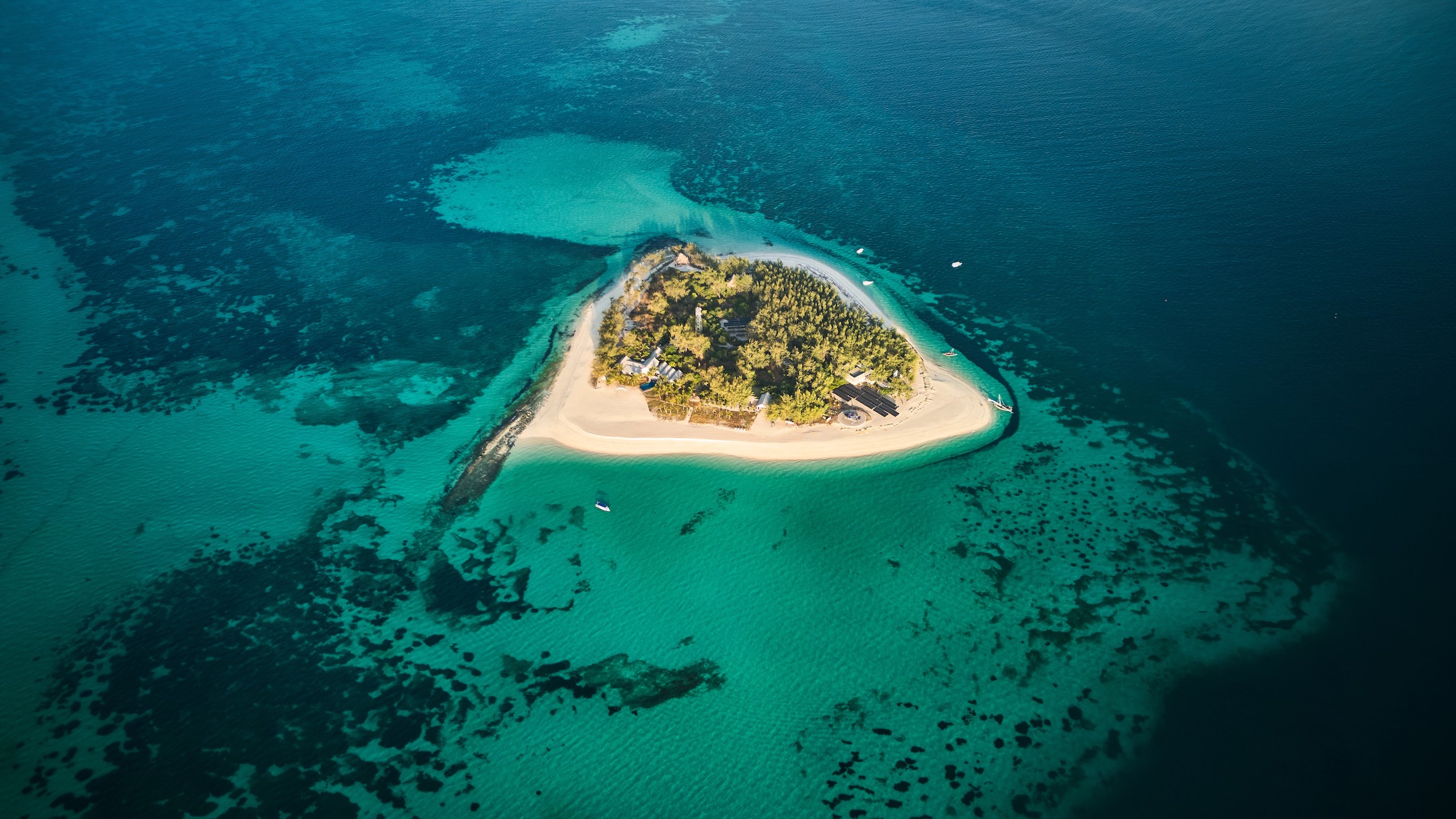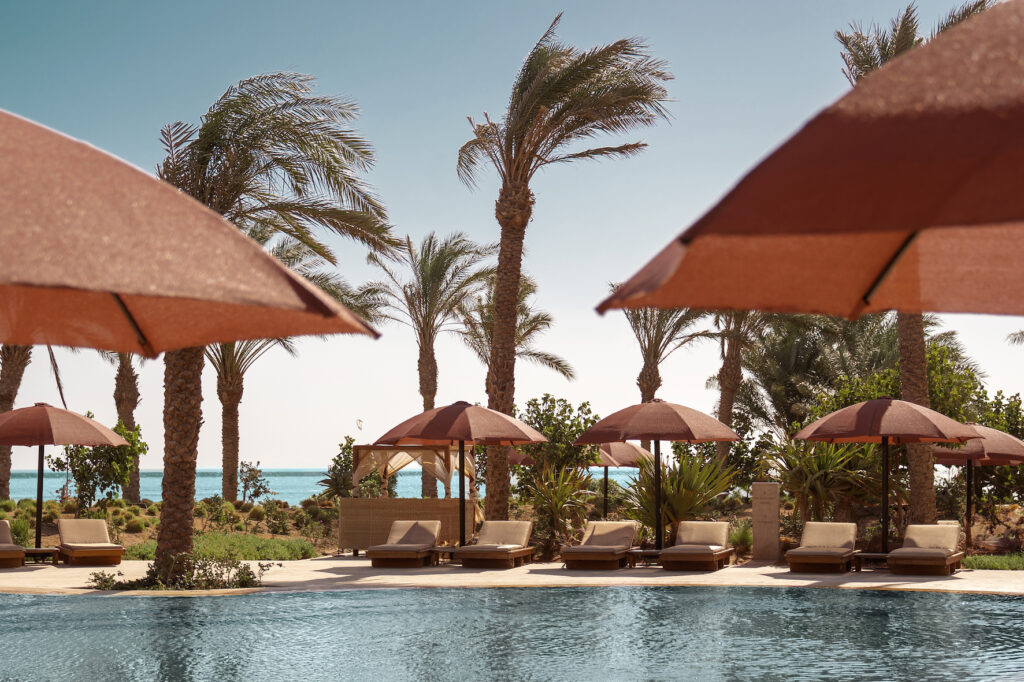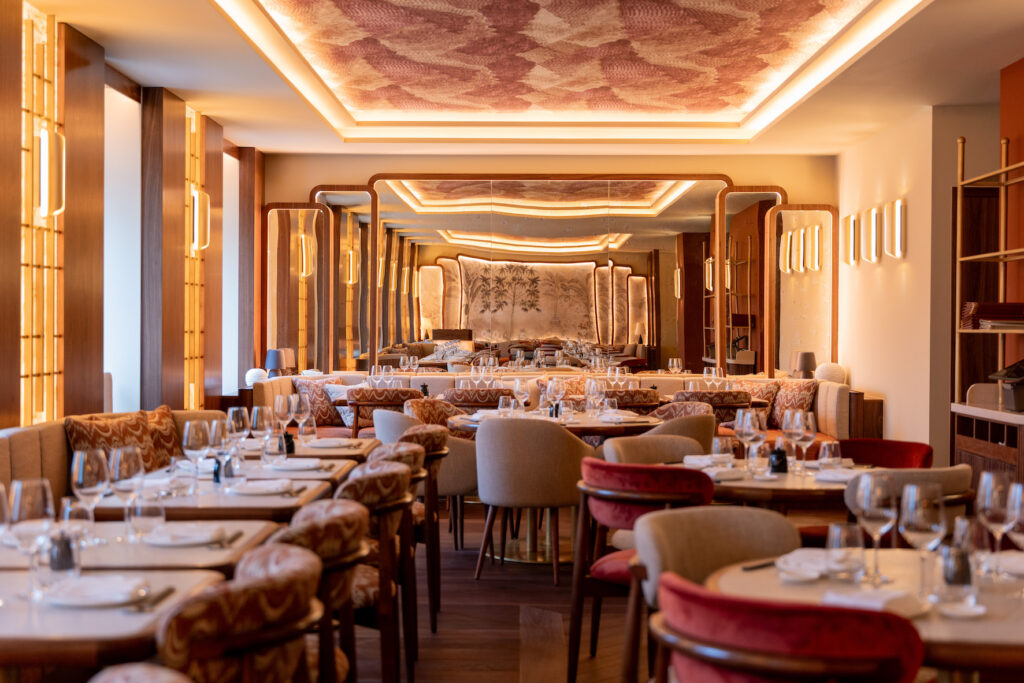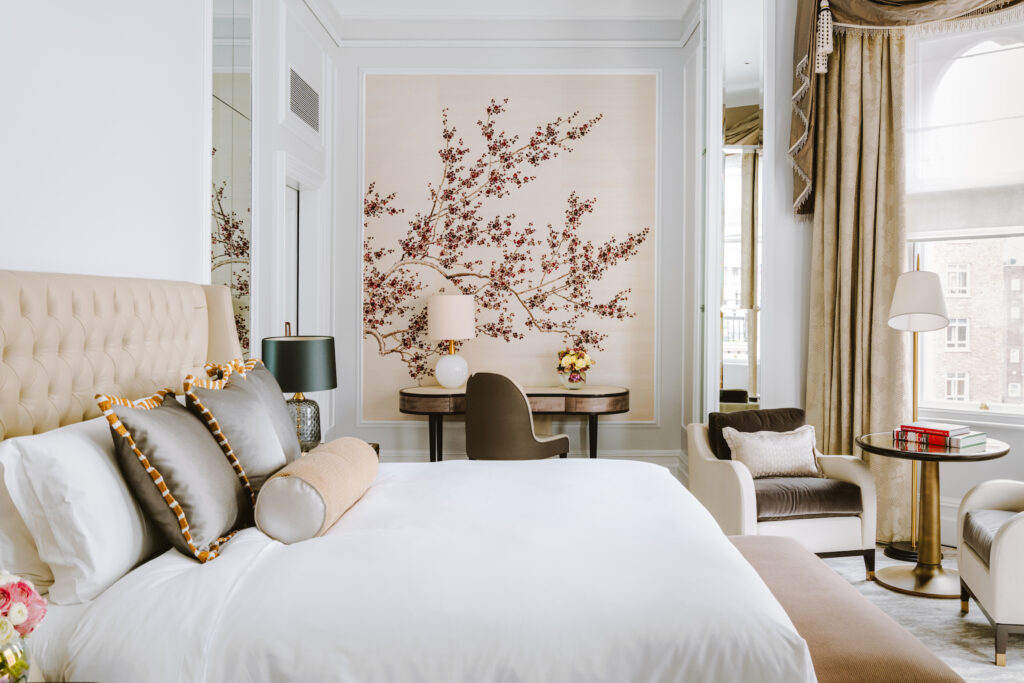Lobster served among 18th-century coral-stone ruins, boat trips to nearby islands with hidden lagoons, and close encounters with marine life—Tanzania’s Jumeirah Thanda Island offers a sole-use experience you won’t find anywhere else.
Along the East Coast of Africa, the Indian Ocean laps the shores of some of the world’s best island lodges—Kisawa Sanctuary on Mozambique’s Benguerra Island; Zanzibar’s Mnemba Island; Madagascar’s Miavana; North Island in Seychelles —all deservedly feted, but none quite like Jumeirah Thanda Island.
A whorl of white sand surrounding a tufted green centre, the pretty isle comes into view less than 40 minutes after Thanda’s Eurocopter EC155 lifts up from Dar to catapult eight of us over the rippling blue. The heart-shaped island looks surreal below, like an elaborate toy, and to some extent that is exactly what it is. With its Cape Cod-style villa, thatch-roof bandas and glass-box pool curving towards the beach, and a choice of catamarans, dhow (traditional Arab sailing craft) and jet skis bobbing in the ombre blues of the Shungimbili Island Marine Reserve, this is a private playground, set up just for you.
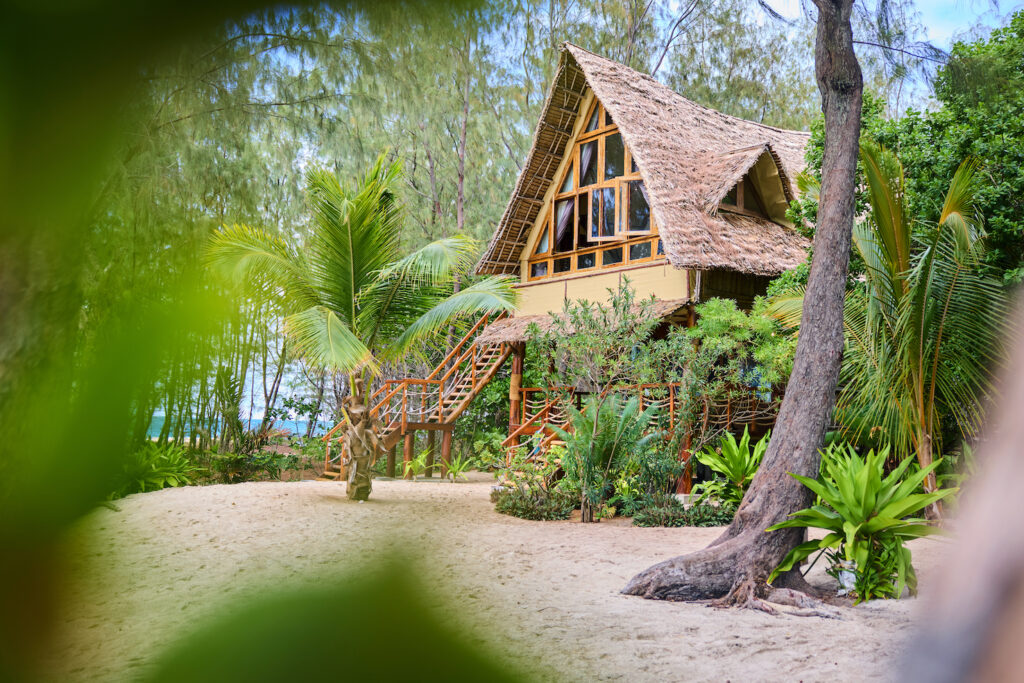
Built by Swedish entrepreneur and philanthropist Dan Olofsson and his wife Christen as a personal family escape, Thanda has been voted the World’s Leading Exclusive Private Island by industry experts for eight consecutive years, yet it’s still relatively below the radar. This is partly because it’s a strictly sole-use experience—whether you are a honeymooning couple, multigenerational family, or friends reuniting for a milestone event, the entire island and team is at your exclusive disposal.
Being both a family-owned and familyfocused project, Thanda’s reputation has been built on a hospitality ethos that has always been authentic; partnering with Jumeirah has only upped the luxury ante. Welcome cocktails in hand, and briefed on the cardinal rules—“You are here to do whatever you want, whenever you want”—we are led back to inspect the Boathouse, which is filled to the brim with aquatic toys, everything new and neat as a pin—wake-boards, water-skis, fishing tackle, kayaks, tubes, jet boards, SUPs, diving gear. Our snorkelling masks and fin sets have already been individually named and laid out on a shelf by Boathouse captain Maya de Villiers, who is always ready to teach or play.
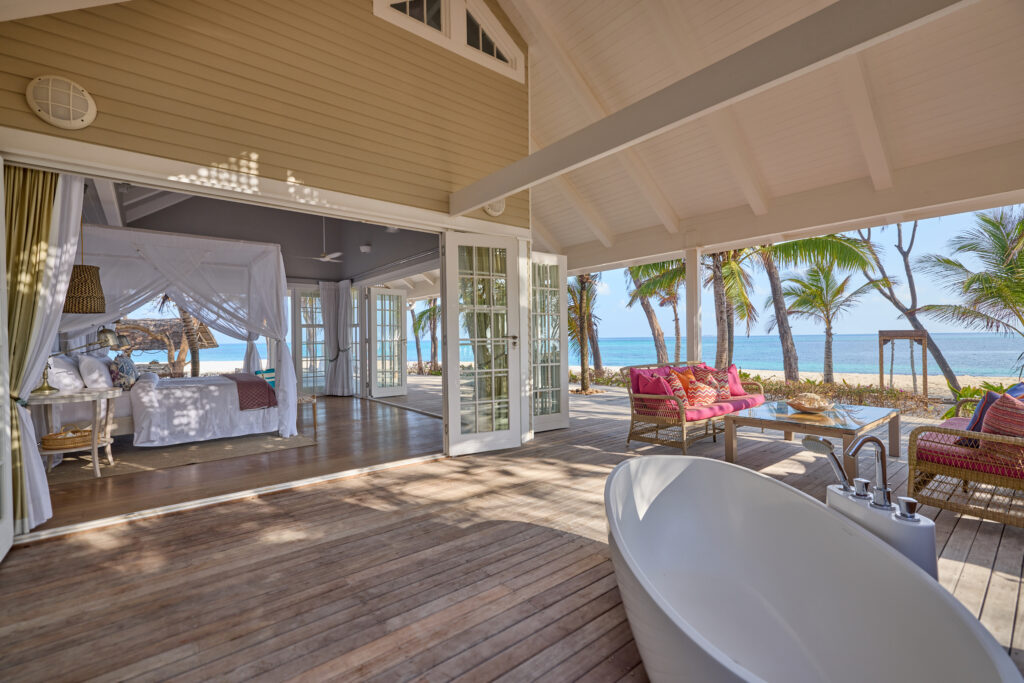
A bespoke programme is created for each arrival, built and balanced around collective interests and individual needs, entirely flexible, though somewhat at the behest of the weather. Which is why we found ourselves choppered to nearby Mafia Island the next day, where we snorkelled the aptly named Coral Gardens, followed by a surprise al fresco lunch, our table set up in the 18th-century coral-stone ruins of Chole Island. Platters of lobster carpaccio with mango tomato salsa and yuzu passionfruit sauce; fresh chunks of watermelon with Tanzanian honey and mustard dressing; beetroot salad with almonds, apple and blue cheese—all served from a makeshift camp kitchen by chef Kevin Roehrig (one of Jumeirah’s rotating world-class chefs, any one of whom can be requested for your stay).
Late afternoon saw us sailing for Blue Lagoon—an intense aquamarine natural pool hidden among the mangroves on Juani Island, before unfurling the dhow sails to make our way back to Mafia, the rhythmic slap of water against the prow lulling us to sleep.
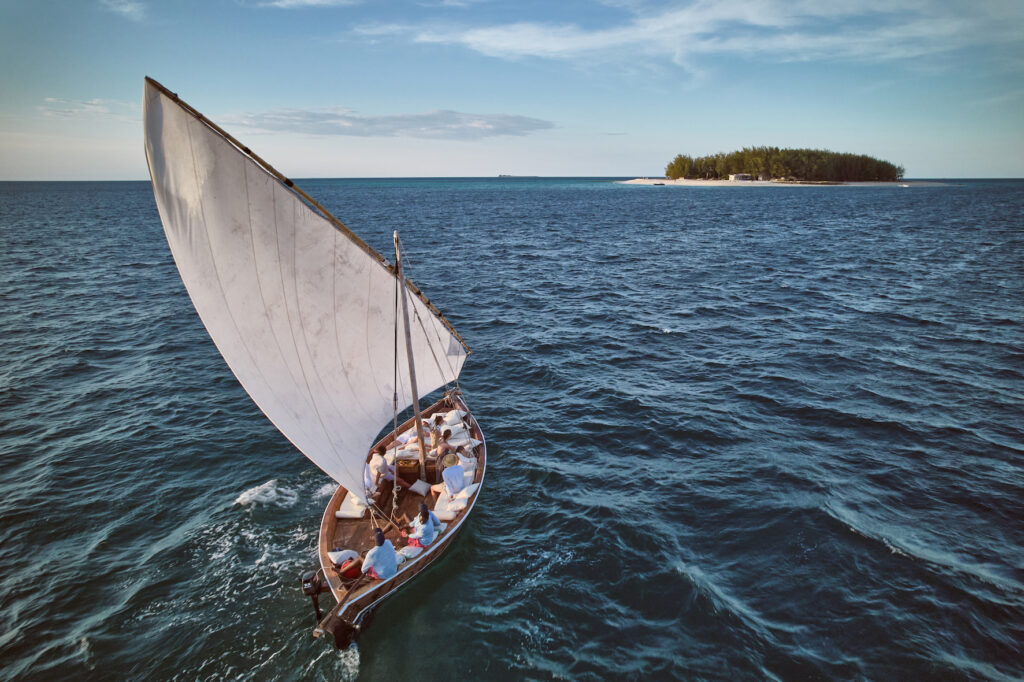
Day two brought improved visibility, and rest for the helicopter. While most of our crew hopped aboard Sazi, the island’s nippy 10 m boat, off to search for the whale sharks lured by the plankton-rich waters surrounding the archipelago, I opted for another morning massage—two therapists are part of the package, both with the kind of healing hands that rub away more than muscle tension.
On their return, we snorkelled the nearby reef with the island’s resident marine biologist, Rianne Laan. Dubbed “Dan’s Reef”, it’s comparable to Mafia Island, but all the better for being exclusively ours. We float above flitting gems—Laan has identified 338 species of fish in the waters around the island, documenting the increase in varieties such as the blacktip reef sharks and the return of nesting turtles—then inspect her coral nurseries, living proof of Thanda’s commitment to marine conservation.
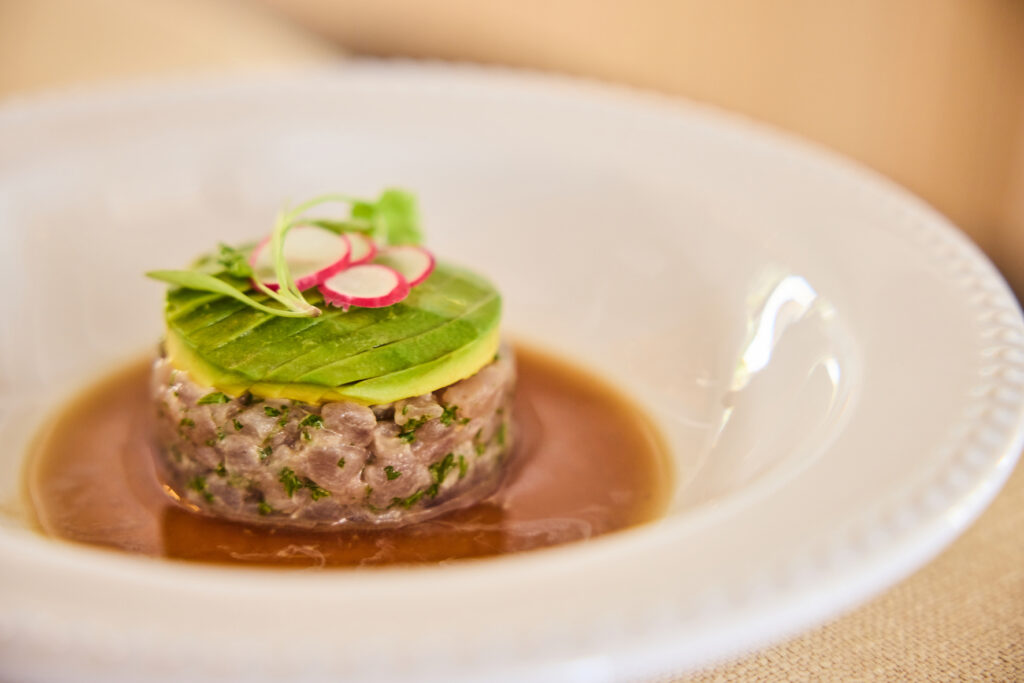
Lunch was another unexpected set-up—this time on a sandbank, solid hardwood chairs and a table draped in white linen on Persian rugs, and the surreal experience of sitting down to a chilled sauvignon and succulent red snapper while terns wheel overhead.
Being pampered and surprised by what are almost theatrical creations in such wild, untouched surrounds, evokes a childlike wonder. Looking through photographs taken during previous stays, this is true for all ages. In one, Laan, dressed up as a giant seahorse, studies a map of clues, children clustered around her; in another, a bronze trophy, specially made to celebrate a 40th birthday, is submerged in shallow waters. These bespoke scavenger hunts are another example of the creativity underpinning Thanda’s hospitality.
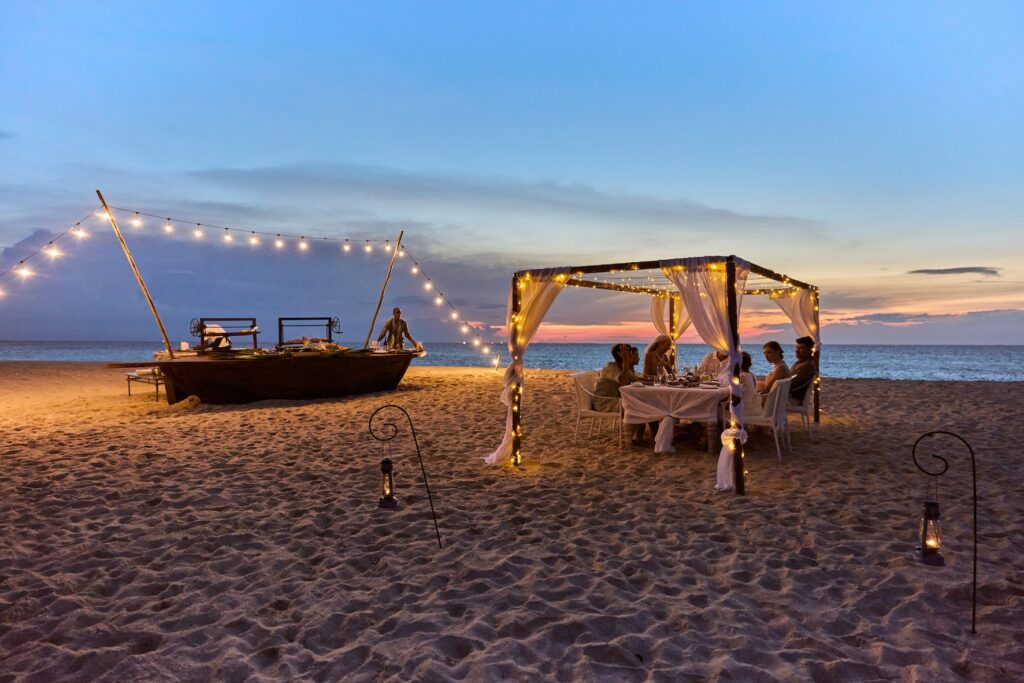
That evening, while the others play “Ginbledon” with members of the team— laughter and the thwack of balls drifting across the beach—I sit with my feet in floursoft sand, gazing into the flames of the evening bonfire, sipping a fine South African pinot. Behind me, beanbags and sofas, carpets and a big screen, a thin wisp of smoke from the wood-burning oven. It’s movie night, with home-made pizzas, on a castaway island, under the stars. What could be more perfect?

